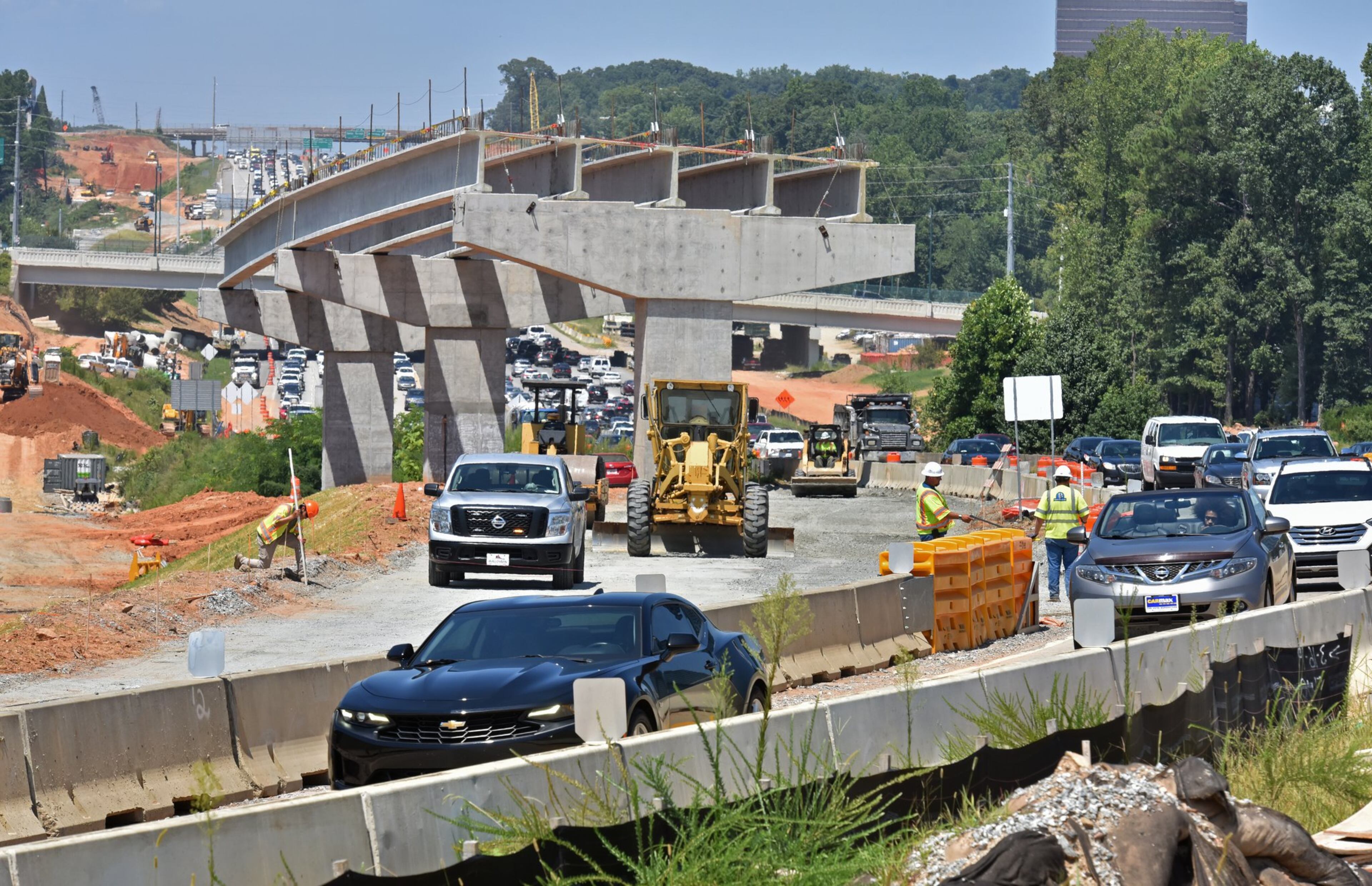Fulton floats major transit plan change, but no consensus from mayors

After years of discussion and delay, Fulton County may have a plan to move forward with two key projects from its transit expansion plan.
County officials and local mayors have discussed including two bus rapid transit lines — one along Ga. 400 in north Fulton, the other on South Fulton Parkway — on a list of projects to be included in a transportation sales tax measure they plan to send to voters next year. The sales tax has been used only for smaller local road projects.
The proposal is far from settled — leaders from the north and the south still aren’t convinced the plan makes sense. And this approach would not pay for all the projects in the county’s transit plan.
But County Manager Dick Anderson told The Atlanta Journal-Constitution this version would let Fulton move forward with something while waiting for more clarity about how transit will develop across metro Atlanta in coming years. Gwinnett County voters will consider a transit referendum in November, and Cobb and DeKalb counties are also developing transit expansion plans.
“It seemed like taking a first step was better than potentially trying to venture out (with a transit referendum) without some regional clarity,” Anderson said.
Mayors across the county feel they’ve been clear and aren’t happy to have their taxpayers’ dollars pay for something they aren’t comfortable with.
“Asking us to raise taxes on our residents for a transit system that wasn’t accommodated (to) our needs is kind of difficult to sell to our public,” Alpharetta Mayor Jim Gilvin said, adding that he’s seen no true consensus from mayors on this plan.
Alpharetta is one of the cities that would most benefit from the Ga. 400 project set to streamline north-south travel, but he said the solution literally moves in the wrong direction.
“We’re a direct beneficiary of the transit component, but if it doesn’t help it with east-west connectivity it’s defeating the purpose of BRT,” he said.
This kind of disagreement on the basics comes after years of Fulton County political leaders trying to hash out a long-term regional transit plan. In 2018, they agreed on a plan that would bring bus rapid transit service to some of the county’s busiest highways and thoroughfares. Unlike local bus service, bus rapid transit operates in exclusive lanes and has limited stops and other features to keep passengers moving.
The transit plan also includes several MARTA rail extensions, bus rapid transit along the top end of the Perimeter and other enhanced bus routes.
The full plan would cost billions of dollars and would take decades to implement. That has led to debate about how much of the plan the county can afford — and how big a sales tax to propose for voter approval.
Geographic and racial equity are central in those discussions. Mayors in south Fulton want to ensure their constituents get a fair share of transit service.
The latest plan addresses the equity concern by moving forward with one major project each from north and south Fulton. The Ga. 400 bus rapid transit line would run from the North Springs station to the park and ride lot on Windward Parkway. The South Fulton Parkway line would run from the College Park MARTA station to Ga. 92.
“There has historically, systemically, institutionally been inequitable allocation of funds for transportation to the north,” said East Point Mayor Deana Holiday Ingraham, who has a MARTA station in her downtown.
A fellow Southside mayor, Vince Williams of Union City, said the COVID-19 pandemic demands basically all of his attention but transportation is too important to ignore.
To him, this is a commercial issue. He said he knows of logistical hubs and warehouses losing employees because of inadequate transit to and from his city.
“If we can’t build out this area as it relates to viable transit and transportation, we suffer economic development opportunities,” he said.
The combined construction cost of the two projects is about $500 million. The General Assembly set aside $100 million for the Ga. 400 line, but that was before government revenue at all levels suddenly declined due to COVID-19.
Although there is no explicit time limit on the $100 million state commitment, Anderson said the county feels obligated to spend the money while the Georgia Department of Transportation builds the Ga. 400 express lanes that will carry the rapid buses. Construction on the express lanes is tentatively set to begin in 2022.

Anderson believes the county could get about $200 million from the Federal Transit Administration. And MARTA has agreed to pay the operating cost of each line out of existing sales taxes.
That leaves about $200 million in construction costs to be covered by local revenue. Under the latest proposal, that money would come from next year’s renewal of a five-year transportation sales tax, first approved by Fulton voters in 2016. The tax has been used to pay for road and bridge improvements, traffic mitigation and traffic signal optimization projects across the county.
Anderson said the two transit projects would use about 40% of the roughly $510 million in revenue expected to be generated by the sales tax over five years. That would still leave more than $300 million for local road projects.
The county has discussed the plan with local mayors, who must seek buy-in from their city councils. County Commissioner Liz Hausmann said that buy-in is far from certain. She said the pandemic-induced recession — and a resulting decline in tax revenue — may make elected officials leery of including the transit lines in next year’s transportation sales tax.
“I think it’s too early to know that for sure,” she said. “We’ve got to get through the end of this year to understand where we all are.”



